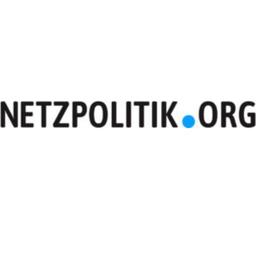Unchecked Power / Scam Europe
Scam Europe
Cryptocurrencies. Bitcoin. Forex. Bonds. Digital trading is everywhere, and with it are organised crime groups happy to take your money. With investment fraud booming across the continent and AI ratcheting up the ante, authorities struggle to contain the tidal wave of Europe's billion-euro scam business.
September 2025

Yet the amount of fraudulent ads is overwhelming to those tasked with stopping the crimes: “We do not have the capacity to tackle all the scam ads that come our way, every day. Even when we identify the people behind them, we just don’t have the ability to arrest them” say Irish law enforcement. There is a palpable sense that while the problem is everywhere, the solutions remain elusive.
Investigate Europe and the Balkan Investigative Reporting Network have teamed up with media partners from across Europe to shed light on some of the actors purportedly behind these crimes, the social media platforms that enable them to flourish and the EU and national regulatory bodies that are struggling to tackle this issue. In the first part of our new investigative series, Scam Europe, we look at the root of some of these scams, exposing an alleged network of individuals connected to a vast financial fraud operation out of call centres in Belgrade, which profited over €250 million and claimed 70,000 victims in Europe, Canada and Australia.
Over the coming weeks, we will reveal some of the ways online financial scams are metastasizing across the continent, highlighting how different European countries are fighting this problem in specific ways. We will show how fraudulent companies create a veneer of legitimacy through advertising and partnership with credible organisations happy to provide a platform for their services. Finally, we hear from victims themselves – who reveal how quickly a harmless-looking investment query can unravel into serious financial losses. We hope you enjoy reading Scam Europe.
Reporters: Maxence Peigne, Sasa Dragojlo, Nico Schmidt, Pascal Hansens, Aleksandar Djordjevic, Ivana Jeremic, Ana Curic, Svetoslav Todorov, Marta Portocarrero, Lorenzo Buzzoni.
Coordination: Mei-Ling McNamara and Milorad Ivanovic
Editing: Mei-Ling McNamara, Chris Matthews
Fact-checking: Chris Matthews
Illustration: Spoovio/Georgina Choleva
This investigation is led and coordinated by Investigate Europe and the Balkan Investigative Reporting Network. The Scam Europe series is being published with media partners including Altreconomia, Balkan Insight, EU Observer, The Irish Times, La Libre, Netzpolitik.org, Público and Der Standard.
IJ4EU (Investigative Journalism for Europe) provided funding support for the investigation.

Help bringour cross-border journalism to life.Support Investigate EuropeDonate
Publications

Federação Portuguesa de Futebol faz acordo com corretora financeira que não tem licença em Portugal
Público, Portugal
2 December 2025

Mais de um terço dos clubes europeus tem parcerias com empresas de criptoactivos
Público, Portugal
2 December 2025

33000 victimes en Europe, un parquet belge submergé: les autorités sont dépassées par une vague d'arnaques financières
La Libre, Belgium
14 November 2025

El fútbol europeo se llena de patrocinadores cripto pese a las alertas de los reguladores
infoLibre, Spain
13 November 2025

Crypto e trading: calcio e tifosi nella rete di sponsor finanziari non autorizzati
Altraeconomia, Italy
12 November 2025

Premier League clubs have crypto sponsors not covered by Britain’s financial regulators
The Observer, UK
12 November 2025

Imagens manipuladas e influenciadores financeiros são novas armas de fraudes online
Público, Portugal
25 October 2025

Governante que tutela empresas tecnológicas tem mais de meio milhão em acções da Google
Público, Portugal
25 October 2025

Intelligenza artificiale, social e vuoti normativi dietro il boom delle truffe finanziarie in Europa
Altraeconomia, Italy
24 October 2025

'I'll have to tell my husband I've lost all our money': Calls reveal trauma of Irish scam victims
The Irish Times, Ireland
16 October 2025
.jpg&w=256&q=75)
Wie Finanzbetrüger Millionen Europäer auf Instagram und Co um ihr Erspartes bringen
Der Standard, Austria
16 October 2025

Boiler Room: Belgrade Call Centres at Heart of Israeli-Linked Investment Scam
Balkan Insight, Serbia
30 September 2025

Izraelska veza: Beogradski kol-centri i lažne investicije koje su otele stotine miliona evra od žrtava
Balkan Investigative Reporting Network, Serbia
30 September 2025

Behind the scam: how an alleged criminal network set a trap for thousands of Europeans to fall for ‘fake’ investments and raked in millions
EUobserver, Belgium
30 September 2025

Des milliers personnes, dont 380 en Belgique, piégées par des arnaques aux cryptomonnaies : un couple soupçonné de gérer un empire tentaculaire
La Libre, Belgium
30 September 2025

Die Spur eines Millionenbetrugs
Netzpolitik, Germany
30 September 2025
.jpg&w=256&q=75)
Hinter dem Scam: Kriminelles Syndikat raubt tausenden Europäern ihr Erspartes
Der Standard, Austria
30 September 2025



